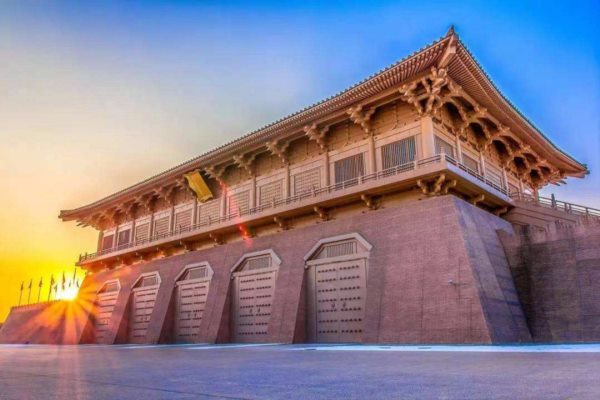关于现实世界资产(RWA)的讨论正在以爆炸性的速度升温。
在 Web3 背景下,RWA 定义了存储在区块链网络上的传统资产(例如房地产、艺术品或商品)的数字孪生。
当然,它为从实体向数字迁移中受益的企业带来了巨大的机会。
当谈到传统“资产”(RWA 趋势的最初焦点)时,人们首先想到的可能不是旅游业,因为它更多的是提供“体验”,而不是数字化或可交易资产。
然而,这个价值 8500 亿美元的行业正在成为 RWA 转型的火炬手。
但如何呢?
旅游业所使用的大多数数字技术都是从其他行业“借来”的。
随着卡米诺网络的推出,全球行业终于有机会构建和控制自己的基础设施。
卡米诺网络基金会主席 Thomas Stirnimann 表示,从通信到电子商务,从“手写机票、通过电传预订”到使用区块链网络实现更好的通信和更快的支付,已经走过了漫长的道路。
Stirnimann 是一位旅游行业专家和富有远见的人,现任 Alpha Golf Travel AG 的董事长和所有者。
他此前曾担任 Hotelplan Holding AG 的首席执行官和董事会成员等重要职务。
此前,Stirnimann 在 Kuoni Travel Holding AG 工作了 20 多年,负责瑞士、斯堪的纳维亚和希腊市场。
卡米诺网络基金会主席还负责 Travelhouse 并发起创立了雪绒花航空公司。
Stirnimann 通过 Camino Network 将他数十年的旅行和酒店业经验带到了区块链领域。
Camino 在西班牙语中意为“路径”或“方式”,是专门为满足旅游业需求而开发的第一层区块链。
“从一开始,我们创始人就知道这将是一次旅程,”他指出,“因为我们都来自旅游业,清楚地看到前景和瓶颈。”
Stirnimann 强调了旅游生态系统的碎片化,解释说几乎每个旅游垂直领域都有自己的一套解决方案。
“很难想象还有比旅游业更分散的行业了,”他补充道。
有些拥有遗留基础设施,而另一些则更好地跟上技术的发展。
“然而,许多垂直行业必须相互沟通才能满足旅行者的需求,”他在独家采访中解释道。
旅游行业瓶颈
API,应用程序编程接口的缩写,是这里的“神奇词”。
它实现了旅游业务不同利益相关者之间的互操作性,从而为旅行者提供了无缝的体验。
然而,快进到今天,它“一直很昂贵,很多时候不可靠,而且总是需要维护”。
Camino Network 的诞生源于为旅游业内部企业提供可靠、共享且价格实惠的系统的愿景。
旨在简化和降低旅行运营成本的系统。
区块链固有的透明度、可追溯性和不变性有助于打击困扰旅游业关键流程的欺诈行为,例如票务和支付欺诈。
“Camino Network 是一个旅游行业沙盒。
我们正在以前所未有的方式将旅游公司联合起来。
我们的社区实际上拥有并决定未来的变化和发展。”
Stirnimann 继续说道,这种环境有助于简化结算、支付和验证等复杂流程。
“有了明确的旅行标准,开发人员可以从维护无数的 API 转向实际开发创新的、以消费者为中心的产品。”
Camino Network 为旅游业在区块链上运营和沟通奠定了坚实的基础,而代币化的 RWA 是其愿景的关键一步。
Stirnimann 通过预订流程举例说明了资产代币化,并指出该流程的关键组成部分(例如飞机座位或房间住宿)可以通过区块链变得更简单、更直接。
代币化请求将从一个钱包发送到另一个钱包,以请求代币化资产。
代币化还可以在最后一刻进行更改和取消时带来安全性和透明度,从而进一步减少欺诈。
旅游技术社区中关于动态定价模型和个性化优惠的讨论已经开始,卡米诺网络基金会主席相信 Web3 将实现新的定价模型,实时适应需求和供应的变化。
Stirnimann强调,RWA代币化对旅游业的主要好处可以归结为更加接近“实时”并提高运营效率,这是迫切需要的。
他解释说,因为在目前的状态下,酒店和机场等大型设施是由无数不同的系统运营的,而这些系统几乎没有连接。
通过实时数据和效率,管理主要出行设施将变得更加容易。
现实世界的资产,现实世界的利益
将旅游业务的每个组成部分转变为可交易资产,为一波新投资者打开了大门,为整个行业赢得了巨大胜利。
斯特尼曼表示,代币化可以将酒店甚至游轮等高价值旅游资产分解为更小的可购买代币。
Regulations stand as the tricky part in the equation of implementing innovation for real-world use. Travel is global, and there is a high chance that legislation differs from departure to destination in one flight. Stirnimann takes a rather realistic approach here and admits that while Camino Network is built as the most interoperable and compliant network, there is much homework to do due to the “conservative” nature of the travel industry.
“Security and trust within the Web3 travel ecosystem is of high priority. Plus, we are keeping in mind the complexities of tax laws and respecting privacy regulations like GDPR and other international rules to keep everything smooth for the worldwide community.”
The Camino Network Foundation, the Swiss-based nonprofit that drives the development of the Camino Network ecosystem, is mindful of securities laws to build compliant solutions across different regions, he explained. “It’s crucial for Camino Network to bring innovation to the industry responsibly.”
When asked about the low-hanging fruits of RWA tokenization in the travel industry, Stirnimann told the good news that there are already some ideas being utilized by a number of businesses — both startups and large-scale companies.
One notable application in development by the members of the Web3 travel ecosystem is the tokenization of vacation properties, which shows how easily properties can be tokenized, according to Stirnimann. Similarly, the hotel industry is exploring tokenization to enhance reservation systems and open up secondary market opportunities.
Another major component of the travel experience is everything that is bookable, like airline, train and bus seats, where tokenization enables e-ticketing in the form of nonfungible tokens (NFTs). Furthermore, the main steps of travel, such as hotel nights and airline seats, can be easily tied to attractions like scuba diving or a segway tour thanks to on-chain communication, Stirnimann explained.
Membership and loyalty programs can also benefit from converting points into digital tokens, adding value and convenience.
Camino Network continues to grow with new supporters from the travel industry. Source: Camino Network
With its layer-1 blockchain designed by a team of travel tech experts, Camino Network -the first blockchain infrastructure owned by businesses from the travel industry- stands at the pole position to lead RWA tokenization in the travel space. “It is a secure place where all participants are verified. Thus, the companies can trust the network,” explained Stirnimann, adding that this trust is one of the keys to kicking off the tokenization process for assets like hotel rooms, airline seats and vacation rentals.
“通过专注于互操作性和合规性,Camino Network 确保所有资产都可以在不同平台和司法管辖区之间无缝集成和交易。
通过社区驱动的方法,我们与行业合作伙伴密切合作,制定有利于所有利益相关者和网络的标准和实践。”
不再有“有趣的互联网货币”
卡米诺网络基金会主席对未来进行了预测,其中区块链技术和旅游业的交叉点将出现新趋势。
“首先,我们将看到公司对代币化资产的兴趣日益浓厚,”施蒂尼曼表示,“正如我们所看到的,越来越多的监管机构开始将数字资产视为‘真实的’,而不仅仅是有趣的互联网货币。”
他补充说,这将导致制定明确的立法和框架,从而塑造旅游业的数字化进程。
“预测现在的趋势与预测1995年早期互联网的趋势是一样的,”他总结道,“Camino Network是旅游业的新蓝海。”


探险者们,你们错过了与#AlienWorlds首席工程师达拉斯约翰逊的对话吗?🪐第1部分:https://alienworldsio/blogs/alien-architect-a-conversation-with-d...


支持加密货币的律师约翰·迪顿自愿领导“扼杀行动”调查支持加密货币的律师约翰·迪顿正在前线工作,调查数字货币生态系统的“扼杀行动 2.0”。在 X 上的一篇最新帖子中,XRP 持有者的律师表示,他自愿领导对“扼杀行动 2....


“元宇宙”最近特别火,从国外火到国内,从理论界到各垂直领域,从资本到科技界一概如此。旅游行业包括大住宿业也开始关注这个新物种,大多数迷茫外,不屑一顾者有之,斥之为“噱头”甚至“骗局”者也有之。元宇宙对旅游酒店业究竟为何物...


虚拟人、数字藏品、XR硬件配置、手机游戏社交媒体文化教育文旅产业诊疗……你承担推销产品,大家来解决感受,在线留言,让越多人见到你。2021年11月18日,湖南张家界元宇宙研究所挂牌上市创立,这被觉得是全国首个开设元宇宙研...